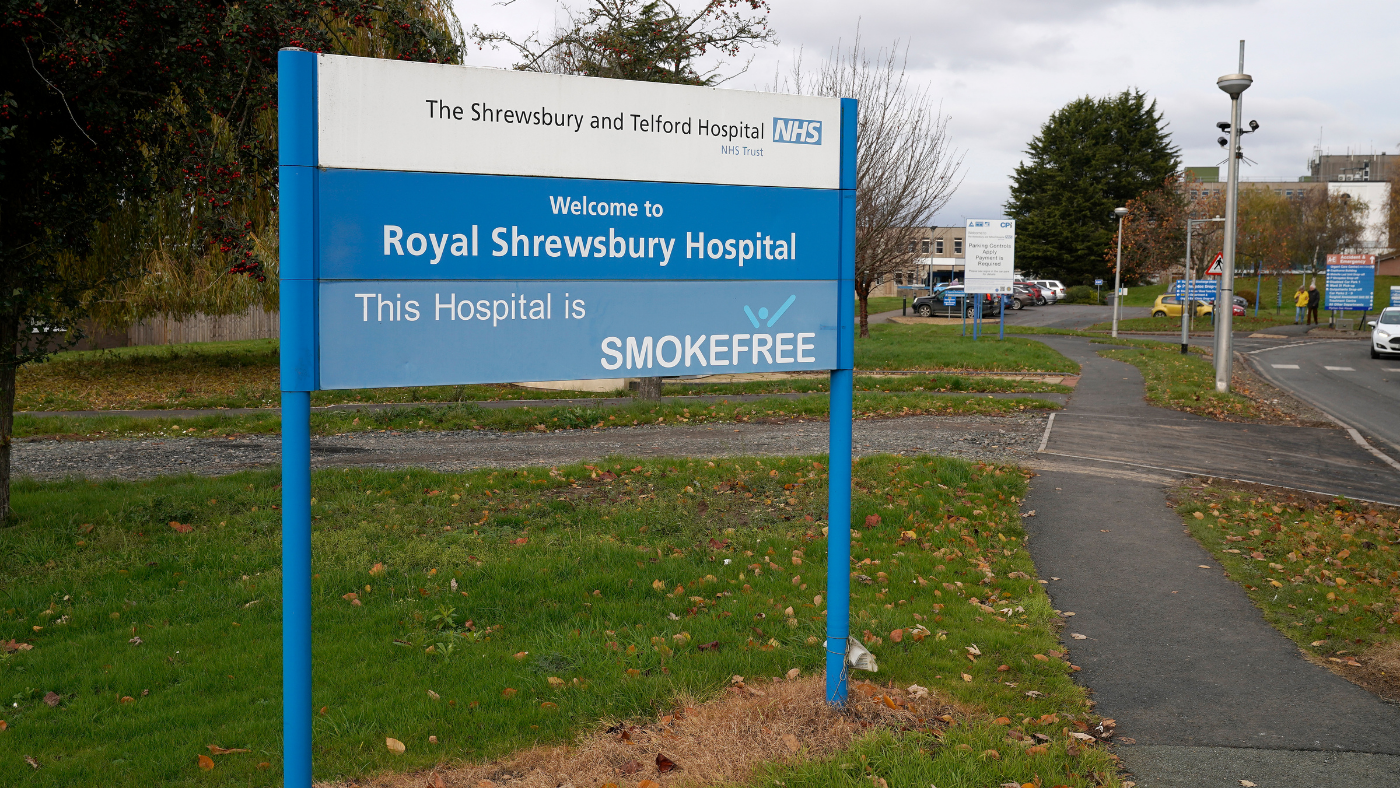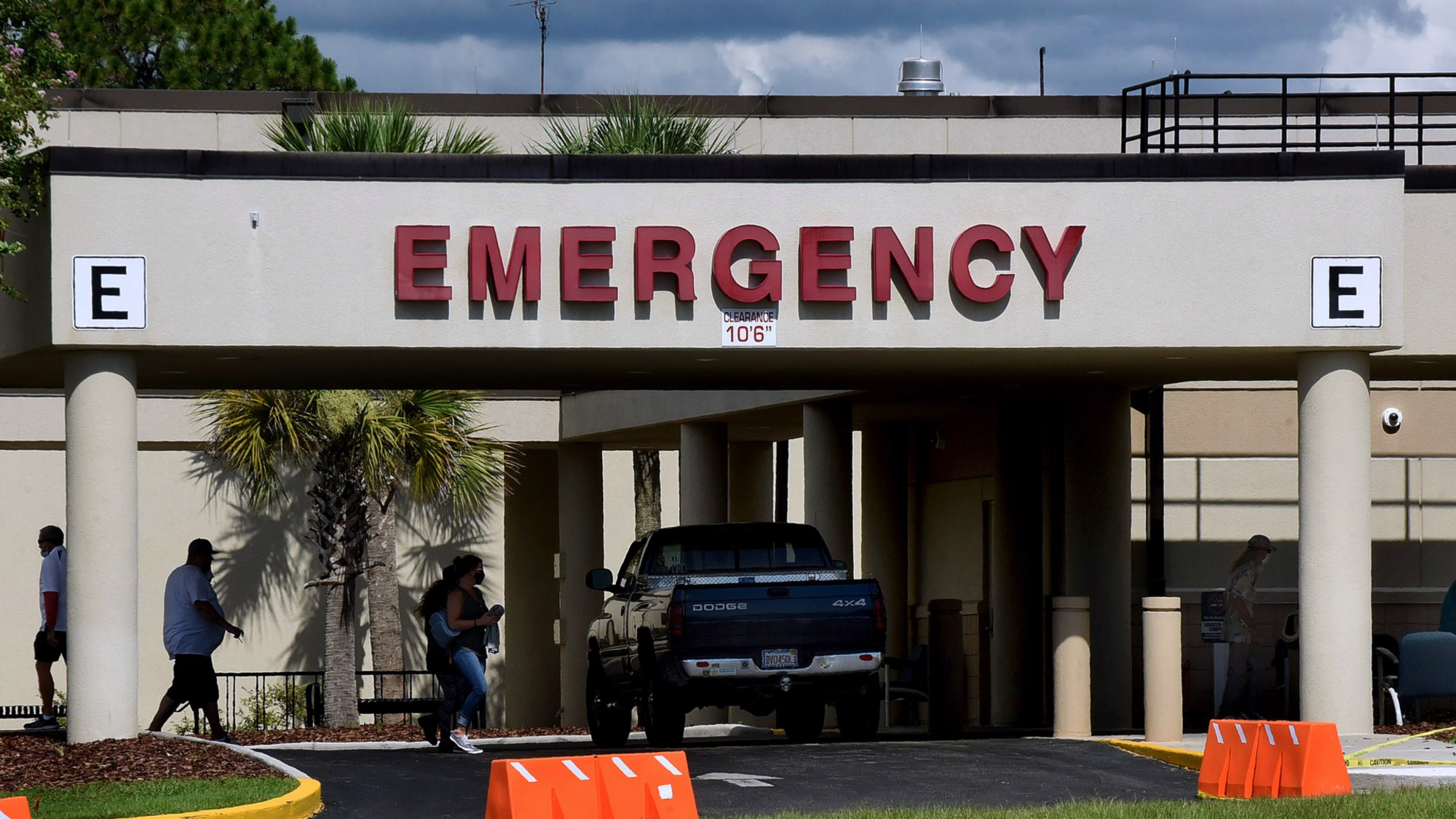Ockenden review: how the UK’s biggest maternity scandal unfolded
Shrewsbury and Telford NHS Trust had a ‘dysfunctional culture’ that led to deaths of babies

A free daily email with the biggest news stories of the day – and the best features from TheWeek.com
You are now subscribed
Your newsletter sign-up was successful
More than 200 babies may have died due to repeated failures at an NHS Trust, a report has found.
A major review investigated a succession of serious and deadly incidents in maternity care in Shropshire and found a string of “repeated failures” spanning 20 years.
The Ockenden review revealed 201 babies could have survived if the Shrewsbury and Telford Hospital NHS Trust had provided better care in what Sky News described as “the worst maternity scandal in the history of the NHS”. In other cases, mothers died and babies were left brain-damaged.
The Week
Escape your echo chamber. Get the facts behind the news, plus analysis from multiple perspectives.

Sign up for The Week's Free Newsletters
From our morning news briefing to a weekly Good News Newsletter, get the best of The Week delivered directly to your inbox.
From our morning news briefing to a weekly Good News Newsletter, get the best of The Week delivered directly to your inbox.
“Bereaved mothers were blamed for the deaths of their babies,” said the broadcaster, which noted that more than 1,500 cases between 2000 and 2019 have been reviewed. Hundreds of families came forward after independent midwife Donna Ockenden was asked to investigate 23 cases of concern in 2017.
The Guardian said the “damning” report condemned the trust for “blaming mothers while repeatedly ignoring its own catastrophic blunders for decades”.
Where cases were examined, responses were lacking “transparency and honesty”, said the report, which also uncovered a culture of bullying, anxiety and fear of speaking out among staff at the trust.
The review examined catastrophic errors and found that “failures in care were repeated from one incident to the next”.
A free daily email with the biggest news stories of the day – and the best features from TheWeek.com
Families of babies who died or who were left seriously disabled due to mistakes at the Trust received the final report of the independent inquiry this morning.
“We now know that this is a trust that failed to investigate, failed to learn and failed to improve,” said senior midwife Donna Ockenden, who headed the review. “This resulted in tragedies and life-changing incidents for so many of our families.”
‘Cultural problems’
A former consultant obstetrician and gynaecologist who worked at the trust for almost 30 years previouslytold the BBC’s Panorama programme what he believes contributed to the trust’s failings.
Bernie Bentick, a former consultant obstetrician and gynaecologist at the Shrewsbury and Telford Trust, said that he sent emails to the hospital’s senior management on several occasions highlighting “incidents of dysfunctional culture, of bullying, of the imposition of changes in clinical practice that many clinicians felt was unsafe”.
Bentick explained that the unit’s “resources were scarce”, and former employees have also highlighted that a lack of midwives and consultants was a problem for some years. As a result, said Bentick, “there was a tendency to blame individuals for not following guidelines rather than look at the underlying factors which may have led to a particular problem, and in particular staffing levels in the midwifery department.”
Today, Ockenden concluded: “There were not enough staff, there was a lack of ongoing training, there was a lack of effective investigation and governance at the Trust and a culture of not listening to the families involved.” She added that what is “astounding”is that these issues were not officially challenged for more than two decades.
Push for Caesareans
The trust also had a “culture of having low rates of Caesarean sections”, the BBC’s social affairs correspondent Michael Buchanan told Radio 4’s Today programme last month. At one point, the hospital was performing the lowest number of C-sections in England, and although there was at the time a national drive to reduce the number ofthese being performed, Buchanan said it appears the trust applied that guidance “too vigorously”.
The Sunday Times described the “dogma” for natural births over Caesareans as “pushed into practice by a group of faceless and often unaccountable public bodies”, with “consensus formed around a fashionable but unscientific set of ideas”. The scandal is “uniquely grotesque in the 21st century”, said the paper, and “ideology must never again be allowed to get in the way” of reducing mother and infant mortality rates.
‘Unorthodox’ case reviews system
One reason the failings in care went on for so long also appears to have been that NHS regulators weren’t necessarily aware of the incidents and patients’ complaints. An initial report published in December 2020 has highlighted that “in many cases the trust failed to investigate after something went wrong, or simply carried out its own inquiry”, said Buchanan.
Panorama also revealed that the trust “developed its own investigation system, what they called a High Risk Case Review”. This “unorthodox” system doesn’t seem to have been used “in any other NHS organisation”, said Buchanan. It resulted in fewer incidents being reported to NHS regulators, thereby “limiting the opportunity to learn lessons”.
-
 Ex-South Korean leader gets life sentence for insurrection
Ex-South Korean leader gets life sentence for insurrectionSpeed Read South Korean President Yoon Suk Yeol was sentenced to life in prison over his declaration of martial law in 2024
-
 At least 8 dead in California’s deadliest avalanche
At least 8 dead in California’s deadliest avalancheSpeed Read The avalanche near Lake Tahoe was the deadliest in modern California history and the worst in the US since 1981
-
 Political cartoons for February 19
Political cartoons for February 19Cartoons Thursday’s political cartoons include a suspicious package, a piece of the cake, and more
-
 A real head scratcher: how scabies returned to the UK
A real head scratcher: how scabies returned to the UKThe Explainer The ‘Victorian-era’ condition is on the rise in the UK, and experts aren’t sure why
-
 How dangerous is the ‘K’ strain super-flu?
How dangerous is the ‘K’ strain super-flu?The Explainer Surge in cases of new variant H3N2 flu in UK and around the world
-
 The ‘menopause gold rush’
The ‘menopause gold rush’Under the Radar Women vulnerable to misinformation and marketing of ‘unregulated’ products
-
 Private equity firms might be causing more deaths in hospital ERs
Private equity firms might be causing more deaths in hospital ERsThe Explainer Deaths in ERs purchased by private equity firms rose 13%
-
 How the care industry came to rely on migrant workers
How the care industry came to rely on migrant workersThe Explainer Government crackdown on recruiting workers abroad risks deepening care sector crisis, industry leaders warn
-
 Could medics' misgivings spell the end of the assisted dying bill?
Could medics' misgivings spell the end of the assisted dying bill?Today's Big Question The Royal College of Psychiatrists has identified 'serious concerns' with the landmark bill – and MPs are taking notice
-
 Washwood Heath: Birmingham's pioneering neighbourhood health service
Washwood Heath: Birmingham's pioneering neighbourhood health serviceIn the Spotlight NHS England chair says there is a 'really good argument this is the model for the future'
-
 The UK's first legal drug consumption room
The UK's first legal drug consumption roomThe Explainer 'Potentially transformative moment in UK drugs policy' as The Thistle opens in Glasgow